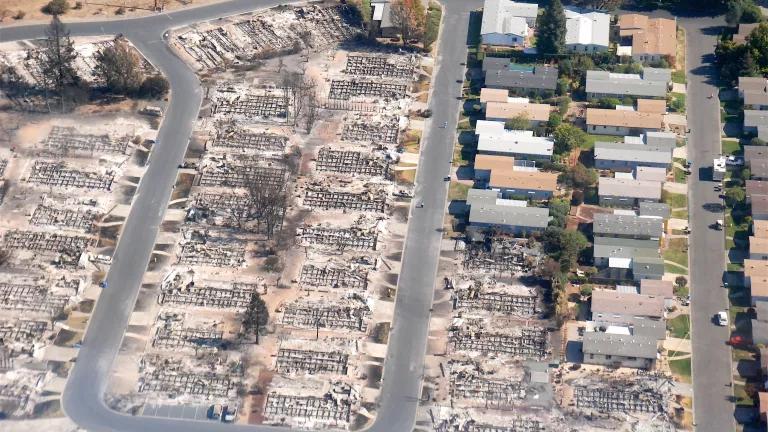States Commit to Clean and Healthy New Buildings
These are two states that have recently felt the devastating consequences of the climate crisis and are now taking action to ensure their homes and buildings stop relying on polluting fossil fuels quickly as possible.

Washington and Colorado recently took exciting steps to ensure new buildings in their states are built ready for the all-electric future. Washington State’s policy, that just passed the state’s building code council, requires all new commercial buildings to use high efficiency heating equipment that can run on 100% clean power. The Colorado bill that is on its way to the Governor’s desk requires that any municipality that chooses to adopt or update building codes also update to the latest international energy conservation standards.
These are two states that have recently felt the devastating consequences of the climate crisis and are now taking action to ensure their homes and buildings stop relying on polluting fossil fuels quickly as possible, including by transitioning to healthy electric homes and buildings.
Washington’s new commercial building code
In a decisive 11-3 vote, the Washington State Building Code Council adopted the strongest, most climate-friendly statewide building energy code for new commercial and large multifamily buildings. The code only applies to new construction, where building efficient all-electric from the start is already less costly than piping for fossil gas use. Once the code goes into effect in July of next year, all new commercial and large multifamily buildings will be built with high-efficiency electric systems (heat pumps) for space and water heating and tighter envelopes, so less of that heat is wasted through leaks to the outside.
The building sector is the fastest growing source of climate-warming emissions in Washington. By tapping into the state’s plentiful supply of affordable electricity—which is among the cleanest in the country—the new code will avoid more than 8 million tons of carbon dioxide by 2050. This is the same as taking 1.8 million cars off the road for a year.
Colorado’s building code update bill
Unlike Washington, Colorado does not have a statewide building code. However, the state has a history of setting minimum energy efficiency levels for new buildings in municipalities that choose to adopt building codes. House Bill 1362, once signed into law by Governor Polis, will require any city or town that adopts or updates any type of building code (for example, a new plumbing code) to also adopt the 2021 International Energy Conservation Code. On average, homes built under this new code will save more than 9 percent in energy costs compared to those built to previous versions of the codes. Unfortunately, the bill leaves a lot of carbon and cost savings on the table by only applying to certain municipalities, which means that Coloradans living in towns that don’t chose to update their building codes will miss out.
The law will require participating municipalities to include electric-ready requirements in their new codes to ensure that homeowners that aren’t ready to go all-electric today do not have to incur unnecessary costs in the future. It will also require participating municipalities to adopt a “zero carbon” code in 2030. Exactly what that code will look like depends on a stakeholder process that is concerningly vulnerable to industry influence.
There’s more work to do
As many Washingtonians and Coloradans know from lived experience, the climate crisis is showing its hand in devastating, life-altering tragedies. The good news is that we can still fight back if we act now and do so aggressively.
Both these policies are excellent steps forward, but we must continue the fight to quickly and equitably transition everyone to affordable fossil-free homes. The Washington Code Council is now reviewing electrification proposals for the residential state code that will go into effect at the same time as the recently adopted commercial code. The stakeholder process to implement the Colorado law will be extensive and possibly contentious. NRDC will be there fighting for progress every step of the way.



